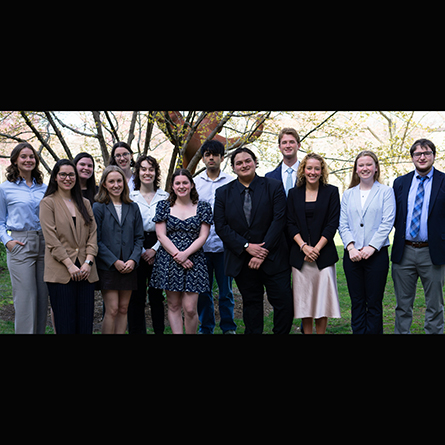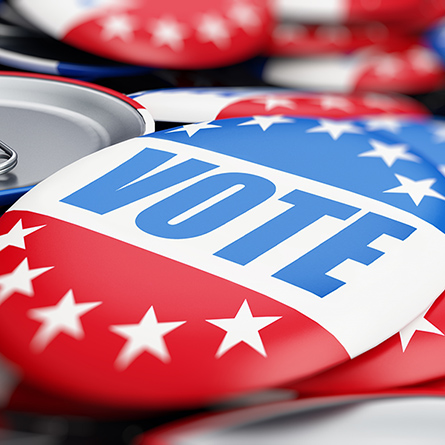
Washington Post publishes voter education analysis by Professor Suttmann-Lea
Conn study shows first evidence of election officials’ use of social media shaping voter behavior
It’s National Voter Education Week, and Assistant Professor of Government Mara Suttmann-Lea has some advice for local election officials: Join social media.
In a Washington Post analysis, Suttmann-Lea, an expert in election administration, and her research colleague, Mississippi State University Professor Thessalia Merivaki, explain their research shows that when local election officials use social media to distribute voting information, voters of all ages are more likely to register to vote, to cast ballots and to have their ballots counted.
“Election officials across the United States are working to get people registered to vote by the deadlines for the November midterm elections. … This year the effort is especially challenging, given new election laws and an epidemic of voter misinformation,” they wrote.
“Our research looked into how local election officials can most effectively inform and encourage prospective voters, help voters to cast valid ballots, and maybe even give Americans more confidence that their ballots will be counted accurately.”
In one study, Suttmann-Lea and Merivaki looked at the 2020 Facebook posts of Florida county election offices in which they outlined their voter registration education efforts, as well as counties where election officials reported placing ads in newspapers, vising community groups and training groups to conduct voter registrations drives. They found that engaging in any one of these activities increased registration by about half a percent, compared with counties that did not. Further, their research showed that for every four additional posts on Facebook, 2020 voter registration increased by 0.1 percent.
“The impact may appear small, but it is significant considering the limited options voters had to become informed about voter registration in person during the early months of the pandemic,” they wrote. “We believe this is the first evidence of election officials’ use of social media shaping voter behavior.”
In another study, the researchers found that in counties where local election officials prioritized information about casting mail ballots on their Facebook content, mail ballots were more likely to be accepted.
“In other words, voter education mattered; voters in these counties were more likely to return a correct mail ballot. That was even true for groups especially likely to see their mail ballots rejected, like young voters and racial and ethnic minority voters,” they explained.
And yet, Suttmann-Lea and Merivaki found that less than half of local election officials have any kind of social media presence, and the majority say they do not have enough resources to dedicate to voter education.
“That’s too bad, since our ongoing research suggests that when state election officials invest in voter education, they may actually bolster confidence in ballot-counting at the personal, local, state and national levels,” they concluded.
“We suspect by improving voter understanding, such education also encourages voter confidence. Voters who have positive voting experiences are more likely to feel confident that ballots are being counted accurately.”

